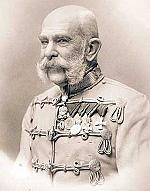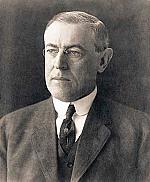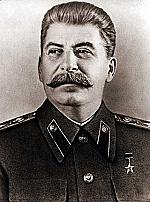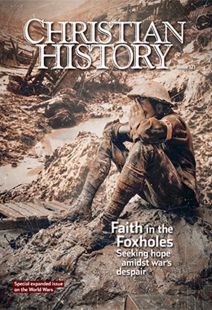The crisis of the West
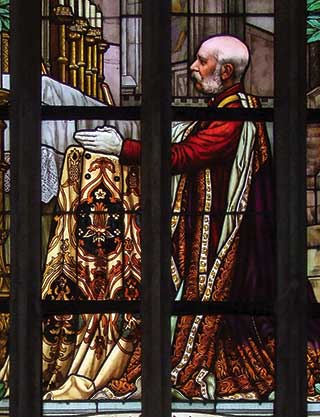
[Emperor Francis Joseph—Wikimedia]
A WRONG TURN on June 28, 1914, plunged the world into war.
Archduke Franz Ferdinand, heir to the throne of the Austro-Hungarian Empire, and his wife, Sophie, rode through the streets of Sarajevo in Bosnia, a province Austria-Hungary had taken from the Serbs just six years earlier. Unbeknownst to him, seven Serbian nationalists were hiding in the crowd to attempt an assassination. The first try—a bomb—missed, injuring an officer. The rattled archduke kept his scheduled appointments, but chose a different route back, intending to go to the hospital to visit his injured officer. But no one told the driver.
When the royal motorcade began to retrace its steps, the archduke asked his driver to reverse direction. The driver turned around right in front of the café where discouraged conspirator Gavrilo Princip was having a sandwich and a drink. Princip looked up, spotted his target, fired his gun, and in a flash everything changed.
Finding and losing faith
The wars to come transformed the Western world. The catastrophic events of 1914–1945 would play out on a global scale, wreak appalling human devastation—and present a challenge to Christian faith.
As the twentieth century dawned, the world seemed to be getting better—and worse. European and American technological and industrial growth had improved living standards, but with troubling side effects. Millions abandoned rural towns to work in industrial cities; traditional craftspeople found themselves out of work. Terrible working conditions and deteriorating relations between bosses and workers sparked socialism, syndicalism (a movement that wanted to give more power to unions), and Communism.
Vladimir Lenin (1870–1924), who would one day lead the revolution that brought Communists to power in Russia, wrote in 1903, “We want to achieve a new and better order of society: in this new and better society… [n]ot a handful of rich people, but all the working people must enjoy the fruits of their common labor.” Reformists in Russia sparked a democratic uprising against Tsar Nicholas II in 1905. Nicholas responded with constitutional measures but cracked down on striking workers.
Democratic movements in the nineteenth century had opened the political process to previously oppressed people; millions now enjoyed basic civil liberties like freedom of speech and assembly. Initially, political unification movements in the Italian and German states promised even greater gains. Governments became more centralized and powerful. But they also developed destructive power, equipped with formidable weapons manufactured on an industrial scale.
Furthering the fit
The unification movements in Central Europe had another dark side: they energized ethnic and racial nationalism. Many respectable intellectuals argued that the white race possessed superior traits, while non-whites were biologically disadvantaged and doomed to be servants and slaves. Francis Galton, a half-cousin of Charles Darwin, wrote of the new “science” of eugenics, “Its first object is to check the birth-rate of the Unfit.” Tragically, these ideas fueled clashes between nations and racial repression: Russia and France both began campaigns against Jews around 1900.
Realpolitik, a new style of diplomacy, set aside morality for national self-interest. Belligerent nations edged closer to the brink of open hostility. Prussia’s Prime Minister Otto von Bismarck (1815–1898) commented in 1862, “It is not by speeches and majority resolutions that the great questions of the time are decided … but by iron and blood.” The ensuing Franco-Prussian War of 1870 and colonial rivalry between France and Italy in North Africa brought Germany, Austria-Hungary, and Italy into the Triple Alliance in 1882.
Order Christian History #121: Faith in the Foxholes in print.
Subscribe now to get future print issues in your mailbox (donation requested but not required).
The Triple Alliance raised fears and anxieties in neighboring France, Russia, and Great Britain. Under the name of the Triple Entente, they began to coordinate their responses to German expansionism. Germany’s ambition to become a great power reached its height under Kaiser Wilhelm II (1859–1941), and the Entente strengthened its resolve to contain it.
The Triple Alliance and the Triple Entente created prospects for a conflict of greater intensity and scope. In 1912 Austria’s Emperor Franz Joseph grew alarmed by rising Serbian saber-rattling—encouraged by Russia—on the Balkan Peninsula. Ottoman forces and Balkan armies clashed, seeking to redraw the region’s boundaries. It was into this context that Gavrilo Princip fired his gun.
Like falling dominoes
The assassination set in motion a flurry of diplomatic moves and countermoves. Austria-Hungary declared war against Serbia; and Russia, Germany, and France mobilized for conflict. Patriotic fervor swept Europe.
Armies collided in September 1914. Great Britain entered the war to halt German advances into France through neutral Belgium. War raged from the English Channel to the Vosges Mountains in France—the Western Front—and in the east from the Baltic Sea to the Black Sea. Italy’s King Victor Emmanuel III pulled his nation out of the Triple Alliance and joined the Entente powers in May 1915, with the promise of getting the Austrian-ruled territory of Tyrol in the Alps and the Adriatic port city of Trieste in return.
Bulgaria entered the war in October 1915, and Romania in August 1916. Military campaigns unfolded in Turkey, Palestine, the Sinai, the Tigris-Euphrates valley, and the Caucasus region. In April 1917 the United States declared war on Germany. American forces tipped the balance on the Western Front and helped to bring an end to the long military stalemate.
This industrial-sized war took a huge toll. Estimates of combatants killed range from 8,500,000 to 10,000,000. Civilian deaths added untold millions. Tens of millions of veterans came home psychologically scarred and physically maimed. Young poet Wilfred Owen (1893–1918), killed only seven days before the war ended, wrote of a fellow soldier’s death: “If you could hear, at every jolt, the blood / Come gargling from the froth-corrupted lungs… / My friend, you would not tell with such high zest / To children ardent for some desperate glory, / The old Lie: Dulce et decorum est Pro patria mori [It is sweet and fitting to die for one’s country].”
People were not the only casualties; imperial governments in Russia, Austria-Hungary, Germany, and the Ottoman Empire fell. Austria-Hungary and the Ottoman Empire were divided up along ethnic lines. In Germany the last days of the war brought the abdication of the ruling kaiser and the declaration of a German republic, while in Russia a Communist coup led by Lenin in October 1917 overcame a weak provisional government.
Social, political, and economic devastation now plagued Europe. The war-ending Treaty of Versailles required Germany to admit guilt and pay reparations; in addition, German boundaries were redrawn, resulting in lost territory. Most Germans disliked the treaty. The leader of the German delegation to Versailles remarked, “Those who sign this treaty will sign the death sentence of many millions of German men, women and children.” And a German newspaper wrote, “The disgraceful treaty is being signed today. Don’t forget it! We will never stop until we win back what we deserve.”
Enter the Fürher
Amid political deterioration and economic collapse, Germans sought national redemption from an unlikely source: Adolf Hitler and the Nazi Party. Throughout the 1930s Hitler and Soviet dictator Stalin suspended individual rights and freedoms and implemented authoritarian controls. Both looked for opportunities to settle old scores with neighboring nations while also expanding their territorial boundaries.
Their policies created havoc, but they appealed to the national pride of those in search of life’s meaning, offering companionship, a cause to fight for, a sense of moral clarity, and belief in a final reckoning with enemies. Nazi Robert Ley declared Hitler in 1937 to be Germany’s savior: “The people nearly perished. Catastrophe was only narrowly averted. It was all due to the faith of one man! Yes, you who called us godless, we found our faith in Adolf Hitler, and through him found God once again.”
Hitler took measures to address lingering grievances against the Treaty of Versailles. In rapid succession, he remilitarized the Rhineland, annexed Austria, and occupied the Sudetenland of Czechoslovakia. Meanwhile another European dictator, Benito Mussolini (1883–1945) of Italy, sent invasion forces to Ethiopia and Albania. In East Asia Japan’s rulers cast a vision for imperial expansion. They had gained Korea and Formosa in earlier wars and now occupied Manchuria and invaded mainland China. Great Britain, the United States, France, and other Western powers attempted to thwart this aggression through diplomacy, but ultimately failed. Germany, Italy, and Japan and their allies became known as the Axis Powers.
Hitler and Stalin’s nonaggression pact to divide Poland removed Hitler’s final obstacle to his designs on Europe. On September 1, 1939, Nazi armored divisions poured across the Polish frontier and inaugurated World War II in the West. Hitler had visions of Lebensraum (living space) for Germans in Slavic lands. In a 1940 speech to young Nazi cadets, he explained, “Truly, this earth is a trophy cup for the industrious man.”
“Members of our own nation”
Hitler’s invasion offered cover for another, equally sinister policy. In a 1939 speech on the “Jewish Question,” Hitler told the Reichstag that “German culture … is German and not Jewish, and therefore its management and care will be entrusted to members of our own nation.” Jews and other groups (homosexuals, the disabled, gypsies) deemed threats to German racial purity were registered, concentrated in labor camps, and ultimately starved and murdered.
By the end of 1941, Axis troops controlled France, the Netherlands, Belgium, Denmark, Norway, and most of eastern and southeastern Europe. Frustrated at his failure to conquer Britain, Hitler set out to subdue Stalin and by 1942 held large portions of Ukraine and European Russia. In the East, Japanese forces held parts of China, Southeast Asia, the Philippines, and Indonesia, plus far-flung islands in the western Pacific Ocean.
But Germany’s gambit in the Soviet Union failed miserably in the face of determined Soviet opposition; Allied forces achieved a breakthrough at Normandy in western France on D-Day, June 6, 1944; and intense warfare weakened the Empire of Japan. Germany surrendered in May 1945, and following the atomic bombings of Hiroshima and Nagasaki in August 1945, the Japanese government capitulated.
Now the West was forced to reckon with more human catastrophe: double or even triple the casualties of World War I; battlefield horrors at Stalingrad, the Hürtgen Forest, and Okinawa; and ghastly civilian parallels in places like Auschwitz and Lidice in Czechoslovakia—where Hitler’s forces had murdered an entire noncombatant village to teach the resistance a “lesson.” As Christians in uniform struggled with ultimate questions of life, death, and eternity amid bombs and bullets, countless others tried to understand how God was present in the deaths of so many innocent millions around the world. Answers about God’s ultimate purposes were elusive. The world wars distilled for Christian faith the challenges of the modern age. CH
This article is from Christian History magazine #121 Faith in the Foxholes. Read it in context here!
By Jeffrey B. Webb
[Christian History originally published this article in Christian History Issue #121 in 2017]
Jeffrey B. Webb is professor of American history at Huntington University and the author of The Complete Idiot’s Guide to Christianity.Next articles
Winston Churchill (1874–1965)
Churchill's speeches encouraged Britain and the allies during World War II
Jennifer Woodruff TaitJosef Stalin (1878–1953)
Stalin's brutality defeated Germany but replace Nazism with Communism
Jennifer Woodruff TaitSupport us
Christian History Institute (CHI) is a non-profit Pennsylvania corporation founded in 1982. Your donations support the continuation of this ministry
Donate




